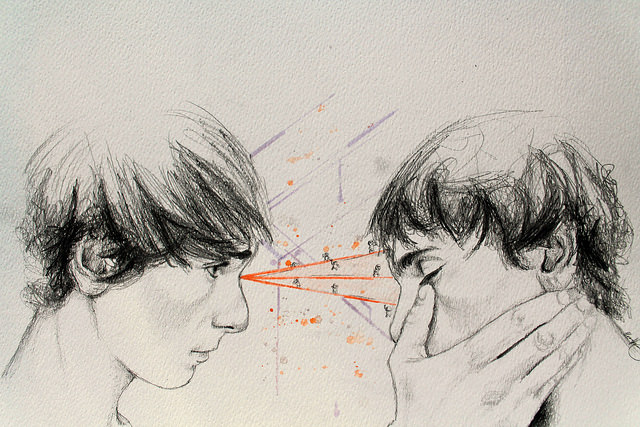
My present moment sounds like an orchestra at times—notifications from Facebook, WhatsApp, Twitter, and emails light up my phone like a disco ball. I’ve since learned to mute WhatsApp conversations and turn off notifications on Facebook. But still, I feel like my present moment is overwhelmed with nothingness! I thought about completely unplugging, but many speaking engagements and clients find me on social media. And what about FOMO?
Here is what I really should be afraid of missing:
Present moments that never make it into my past so that I could retell it in the future.
Here is why:
The present moment has been challenged to expand in spite of its limited capacity. Minute by minute, smartphone notifications from Facebook, Twitter, emails and other social media outlets, have imposed a demand on what the present moment can offer. Unless we are traveling at the speed of light, time dilation is not an option. Although, there are situations when our brains slow down time to allow careful encoding of what is going on, such as during a car accident.
Fortunately, life is not a series of car accidents, which means that a minute can only fuel sixty seconds worth of living.
We know from neuroscience that attention is a limited capacity, and multitasking does not mean an equal distribution of attentional resources to simultaneous tasks. What actually happens is attention shifts back and forth among these tasks. As attentional resources become scarce during the streaming-overloaded present moment, the contents of these moments are improperly packaged into memory quanta. Furthermore, the richness of these memories becomes compromised, misfiled, or never encoded, amounting to a sketchy past lacking vivid memories.
Thus, engaging in so many different tasks at the same time contributes to poor encoding of memories.
Some of us have tried to push this to the extreme by artificially dilating the moment by living on speed and taking stimulants (legal and otherwise). However, a much more common practice is decreasing the number of hours we sleep. The problem is, we cannot actually surrender the moment to our demands. Chronically sleep-deprived people have a shorter life expectancy—it’s as though the moment is sticking its tongue out, and restating that there are a dedicated number of wakeful hours, and should we over-indulge in using them, our life span becomes truncated.
Many modern factors contribute to the sketchy-past problem: we have made a global factory out of the world, where urban planning intentionally replicates building blocks of cities. Seriously, my neighbors and I have the same fridge, kitchen cabinets and counters! For memories to be encoded vividly and with longevity, the contexts in which they happen should differ. But, this cookie cutter approach makes it difficult to encode specific details and separate memories.
Technology has also contributed to standardizing our lives by increasingly obviating hard copy books, newspapers and magazines. Many read on their kindle, iPad, or other tablets. As mentioned above, memories are easier to encode when distinguished from one another. All these tools provide identical contexts, within which memories are superimposed. These highly overlapping details make the task of later recall more challenging. So, when reading a book on a tablet, every page has the same context, scrolling down or up the same white screen. I remember an experience from a book, because of the way my tears have textured one of its pages, or perhaps because of the coffee stains, the iPad cannot compete with that!
I wonder who will be able to tell this present when it becomes past?
Will future grandparents have a paucity of stories that start with, “I remember when I was your age…”?
Author: Marwa Azab
Image: lucahennig/Flickr
Editor: Emily Bartran


 Share on bsky
Share on bsky




Read 0 comments and reply